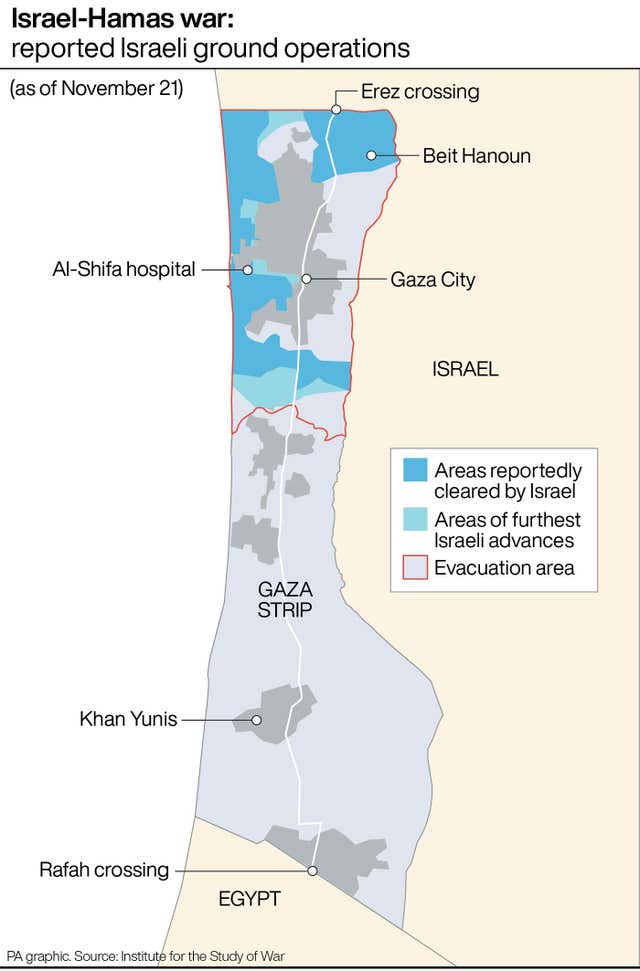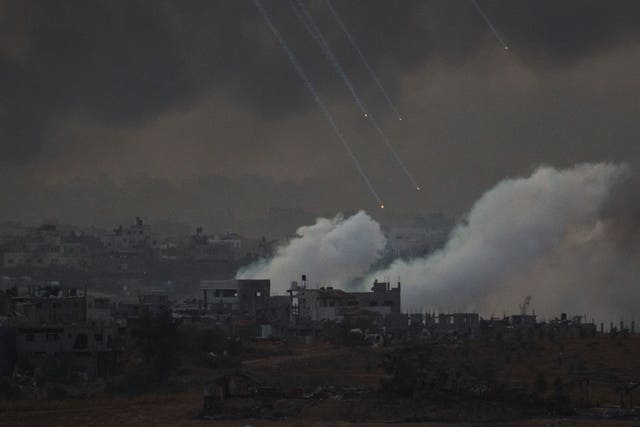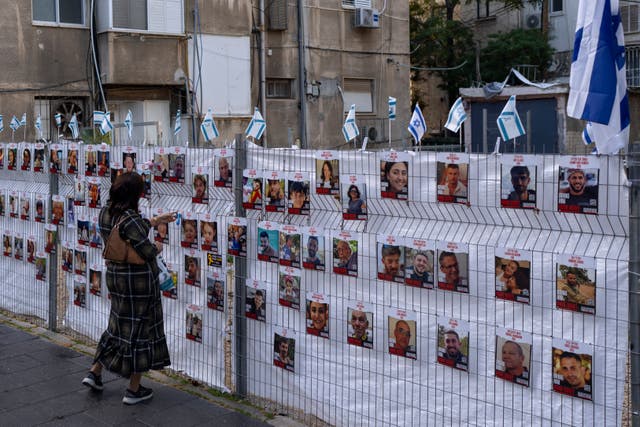Israel and Hamas agreed to a four-day ceasefire in the war in Gaza, a diplomatic breakthrough that will free dozens of hostages held by militants as well as Palestinians imprisoned in Israel, and bring a large influx of aid to the besieged territory.
The truce announced on Wednesday raised hopes of eventually winding down the war, which was triggered by Hamas’ October 7 rampage into Israel.
Now in its seventh week, the war has levelled vast swathes of Gaza, fuelled a surge of violence in the occupied West Bank, and stirred fears of a wider conflagration across the Middle East.
But Israeli prime minister Benjamin Netanyahu said late on Wednesday he told US President Joe Biden that he will press ahead with Israel’s war after a temporary ceasefire expires.

Mr Netanyahu said at a news conference he delivered the message to Mr Biden in a phone call on Wednesday.
“I want to be clear. The war is continuing. The war is continuing. We will continue it until we achieve all our goals,” Mr Netanyahu said.
Mr Netanyahu’s national security adviser said a planned hostage-for-prisoner swap with Hamas has been delayed until at least Friday.
In a statement released late Wednesday, Tzachi Hanegbi said that contacts on the deal were continuing.
“The release will begin according to the original agreement between the parties, and not before Friday,” he said.
The ceasefire between Israel and Hamas is expected to take effect on Thursday.
Mr Netanyahu, along with the other members of his special war cabinet, told a press conference earlier Wednesday they will resume the war until Hamas is destroyed and all of the 240 hostages it is holding are released.
The ceasefire deal, whose logistics were being worked out late Wednesday, temporarily freezes both sides at a tenuous moment.
Israeli troops hold much of northern Gaza and say they have dismantled tunnels and much of Hamas’ infrastructure there.
But Israeli officials acknowledge the group’s infrastructure remains intact elsewhere.

Just days before the truce, Israel said it was determined to take its ground offensive into the south.
That could be potentially devastating for Gaza’s uprooted population, most of which is squeezed into the south with nowhere to go to avoid the assault.
Residents in Gaza City said the fighting intensified overnight into Wednesday, with gunfire, heavy artillery and airstrikes.
“Apparently they want to advance before the truce,” said Nasser al-Sheikh, who is sheltering with relatives in the city.
Palestinian militants continued firing rockets at Israel throughout the day, without causing casualties.
The announcement of the truce capped weeks of indirect, stop-and-go negotiations to free some of the roughly 240 hostages taken by Hamas and other militants during their October 7 raid. Egypt and Qatar, along with the United States, helped mediate the deal.

Fifty hostages will be freed in stages, in exchange for the release of what Hamas said would be 150 Palestinian prisoners.
Both sides will let go women and children first.
Israel said the truce would be extended an extra day for every additional 10 hostages freed by Hamas.
Hamas said hundreds of trucks carrying humanitarian aid, including fuel, would be allowed to enter Gaza.
The ceasefire is to take effect at 10am local time on Thursday, according to Egypt’s state-run Qahera TV channel.
Mr Biden welcomed the deal, saying Mr Netanyahu committed to supporting an “extended pause”.
Several nations, including Britain, France, China and Russia, also welcomed the agreement.
Qatar’s prime minister, Sheikh Mohammed bin Abdulrahman Al Thani, said he hoped the deal would eventually lead to a permanent cease-fire and “serious talks” on resolving the Israeli-Palestinian conflict.
Israel’s Justice Ministry published a list of 300 prisoners eligible to be released, mainly teenagers detained over the past year for rock-throwing and other minor offences.
The Israeli military says it has detained more than 1,850 Palestinians in the West Bank since the war began, mostly suspected Hamas members.
More than 200 Palestinians have been killed there, mainly during battles triggered by army raids.
Attacks by Jewish settlers have surged, deepening Palestinian despair.




Comments: Our rules
We want our comments to be a lively and valuable part of our community - a place where readers can debate and engage with the most important local issues. The ability to comment on our stories is a privilege, not a right, however, and that privilege may be withdrawn if it is abused or misused.
Please report any comments that break our rules.
Read the rules hereLast Updated:
Report this comment Cancel